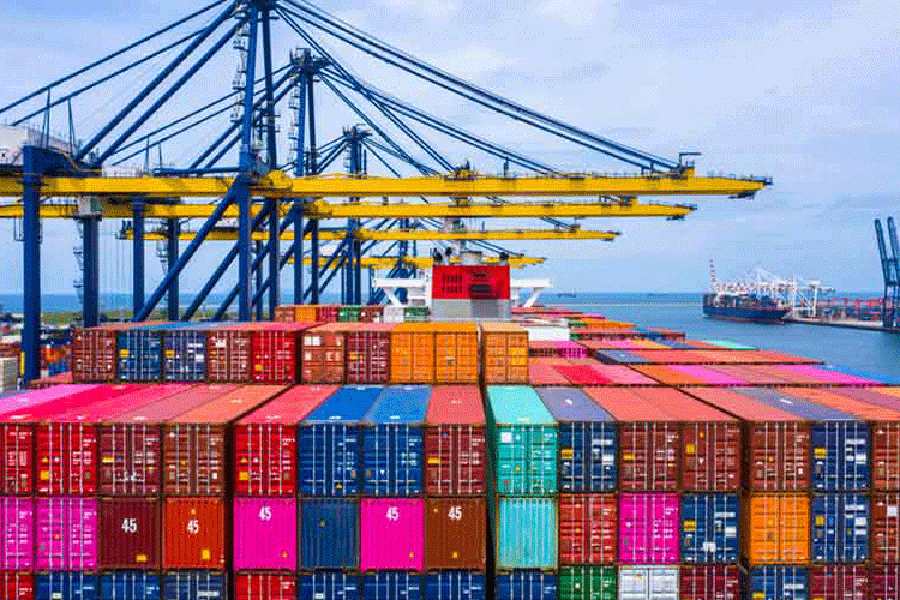Exports dropped 22 per cent in June to $32.97 billion, the steepest in the last three years on account of global demand slowdown, especially in the US and Europe.
As many as 21 of the 30 segments reported contraction in June, including petroleum products and engineering.
But electronics surprised with a 45 per cent growth in shipments, according to commerce minister data.
Trade deficit in June fell to $20.3 billion from $22.07 billion a year ago; imports fell 17.48 per cent to $53.10 billion from $66.31 billion.
In May 2020, exports contracted 36.47 per cent when the world was in the grip of the Covid-19 pandemic.
Commerce secretary Sunil Barthwal said the growth in the trade sector was in the hands of global factors. The World Trade Organisation (WTO) had projected a slowdown in global trade, and “that fear is coming true”.
According to the World Bank Global Economic Prospects report (June 2023), the global economy is set to slow substantially in 2023 to 2.1 per cent after growing at 3.1 per cent last year.
Besides the demand slowdown, tightening of monetary policies by the rich nations is affecting manufacturing and businesses, he said.
Oil imports in June contracted 33.8 per cent to $12.54 billion. Gold imports rose 82.38 per cent to about $5 billion.
A. Sakthivel, the president of the Federation of Indian Export Organisations, said “things were expected to improve from Q3 of the calendar year, with fresh orders or order bookings for festival and New Year season beginning to come.”
“It will be too early to expect the world economy to make a strong rebound and propel the exports of Indian engineering exports but the medium- and long-term outlook remains strong,” EEPC India chairman Arun Kumar Garodia said.
Plastic, ready-made garments of all textiles, engineering, chemicals, gems and jewellery, leather and marine products reported contraction.
Madan Sabnavis, chief economist, Bank of Baroda said: “Trade deficit in the first quarter was lower at $57.6bn against $62.6bn in the first quarter of the last fiscal, as imports have declined by much more than exports. This trend is likely to continue in FY24. We expect India’s CAD to be within a range of 1.2 per cent to 1.5 per cent of GDP in FY24.”
UK pact
India and the UK are working to iron out differences on issues such as intellectual property rights (IPRs) and rules of origin under the free trade agreement being negotiated by the two countries, a top government official said on Friday.
The 11th round of talks is underway in the UK for the agreement. Negotiations for the trade agreement started in January 2021.
Commerce secretary Sunil Barthwal said that out of 26 chapters in the agreement, 14 have been closed. In five chapters there are certain important contentious issues pertaining to environment, labour, and digital trade.
This agreement is the “most complex” one which will be going to be signed by India, he told reporters here.
“UK will be the first with which we are going to have a comprehensive FTA which we have not signed with any other developed country as such,” he added.










